I’m a fluent Scottish Gaelic speaker and one of the things that keeps me awake at night is bad Gaelic tattoos. There’s some bad tattoo art out there for sure, but I’m not talking about the art so much as the misspelled Gaelic words and unintended meanings that end up permanently inscribed on the skin of some poor souls.
Here are some of the bad Gaelic tattoos that inspired me to write a Gaelic tattoo handbook.
The book shows you how to avoid getting a Gaelic tattoo nightmare – how to pick the right word or phrase, who to trust for a translation, and what not to do:
More info: bradanpress.com
I Not Love You
This one is supposed to say “Tha gaol agam ort” which means “I love you.” Unfortunately they used a “C” instead of the “T” at the beginning, so it looks like it says “Cha Gaol Agam Ort” – “I Not Love You.” (Don’t worry, it’s probably just photoshopped, like his abs.)
My Grandfather, My Grammar
This one is supposed to say “My grandfather, my hero, my love” and the knotwork looks really nice. But it has three spelling mistakes because in Scottish Gaelic, the way that you pronounce and spell a word can change depending on the grammar.
For example, “mo” (“my”) changes the first letter of the word after it. An “h” is supposed to come after the first letter, which also changes the pronunciation:
Mo + seanair = Mo sheanair
seanair – pronounced “shen-er”
sheanair – pronounced “hen-er”
So the tattoo should read: “Mo sheanair, mo ghaisgeach, mo ghràdh.”
Unfortunately, even a dictionary will not always tell you these things. My book explains how to find Gaelic translations you can trust.
Also, this tattoo sounds a little weird, like her grandfather is her lover.
Born and Baguette
I don’t have a photo of this one, but a friend told me that he saw it in real life, so I’ve recreated it.
This tattoo shows the dangers of using free online translation. It was supposed to say “born and bred” (as in breeding or ancestry).
Someone went to a free online translation site, and their spelling was not so hot, so they accidentally typed in “born and bread” (as in baked loaves made of flour). And the translation site gave them exactly what they asked for. Bread in, bread out.
Ironically, translation websites are not even this accurate usually. They can be good for giving an idea of the general meaning, but you can NEVER trust them for something as permanent and public as a tattoo or a sign.
Again: NEVER rely on free translation sites for a tattoo in a language you don’t understand.
TRADITION
These brothers got matching Gaelic tattoos to honour a multi-generational family tradition of airborne military service.
I feel bad for them because the tattoo was supposed to say “family tradition” but instead it says “report out of the people.” Huh? This is what happens when you try to look up words in a Gaelic dictionary and then put them together with English rules.
“Beul-aithris” means “oral tradition” and so maybe they thought that “aithris” meant “tradition,” but it doesn’t. It means “report,” “account,” or “recitation.”
“Dream” can mean “people” or “kindred” or “folk”, but it’s not the usual Gaelic word for family (which is “teaghlach”).
After all that, though, it turns out that the Gaelic word “dualchas” (“heritage” or “tradition,” pronunciation at http://bit.ly/dualchas) gives the meaning they wanted.
Sore Elbow?
This poor guy rushed out to get a tattoo on his lunch hour somewhere in Scotland, and ended up with a huge spelling mistake.
It was supposed to say “Saor Alba,” which literally means “Free Scotland.”
Instead a spelling mistake turned “saor” into the English “soar” — an easy mistake to make when you don’t know Gaelic. But you’re the customer and it’s your responsibility to get it right. That’s why they make you sign a release.
Ideally if you want the tattoo to say “Free Scotland” as in a Scotland that is free, it should say “Alba shaor.”
If “saor” is placed before the noun, as in “Saor Alba,” then it’s an imperative verb, an order (in the second-person singular, not plural) to “Liberate Scotland!” A more poetic choice would be “Saoradh Alba,” “May Scotland Be Free.”
You Are Like Half Of Me – Literally
This one says “Tha Thu Mar Leth Dhìom” which literally means “You Are Like Half Of Me.”
Technically it’s correct, but it’s awkward and clunky and sounds like English. A lot of Gaelic speakers have negative reactions to this kind of Englishy Gaelic – because it’s changing and even killing the language.
The problem is that a translation like this can’t be fixed by correcting a spelling mistake, because the entire sentence is based on English grammar and thinking.
The problem, as I explain in my book, is that the word and idea of “half” are used somewhat differently in Gaelic than in English. So in the book, I offer a more poetic expression of this sentiment, drawn from a medieval Gaelic poem. (I also think this one would be nicer if it followed the curve of the woman’s body and Didn’t Capitalize Every Word.)
You keep using that word. I do not think it means what you think it means.
I may not be popular with Outlander fans for saying this, but it’s not a good idea to get a “Sassenach” tattoo. Yes, the Scottish character Jamie uses it as a term of endearment for the English Claire in the books. However:
In real life, “Sassenach” is used in three different languages (which are mixed without regard for reality in the books and the television series).
“Sasannach” is the real Gaelic word, and in Gaelic it means “English person.” Nothing more, nothing less.
However, the word was also borrowed into the Scots language (and from there into Scottish English) as an ethnic slur for an English person. This word has the altered spelling “Sassenach.” When used in English (as it is in the series), this word is hurtful to some English people in Scotland. Think of words like “dago” and “wop.”
“Sassenach” also does not actually mean “Outlander.” “Gall” is the closest Gaelic word for that (pronounced a bit like “gowl” and rhyming with “cowl”; see http://bit.ly/GallDefinition and http://bit.ly/GallPronunciation).
So, enjoy your Outlander Sassenach merch in the USA perhaps, but leave it at home when you visit Scotland, and please don’t get a permanent tattoo of a derogatory ethnonym, even if it symbolizes love to you as an Outlander reader. Gaelic language, culture, and people existed long before Outlander (long before English existed, in fact), and respect is due.
The Scottish Gaelic Tattoo Handbook
Mòran taing (many thanks) for reading. Scottish Gaelic is alive and well worth exploring. I hope you’ll take the time to engage with the language, culture, and people as you dream and plan your tattoo. Beannachd leibh!
17Kviews
Share on Facebook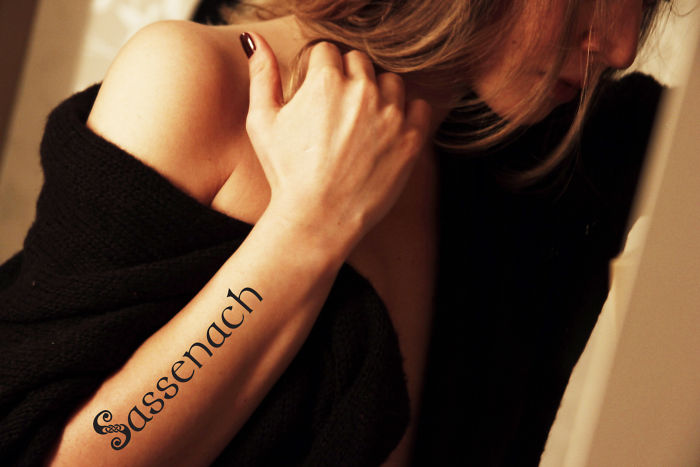
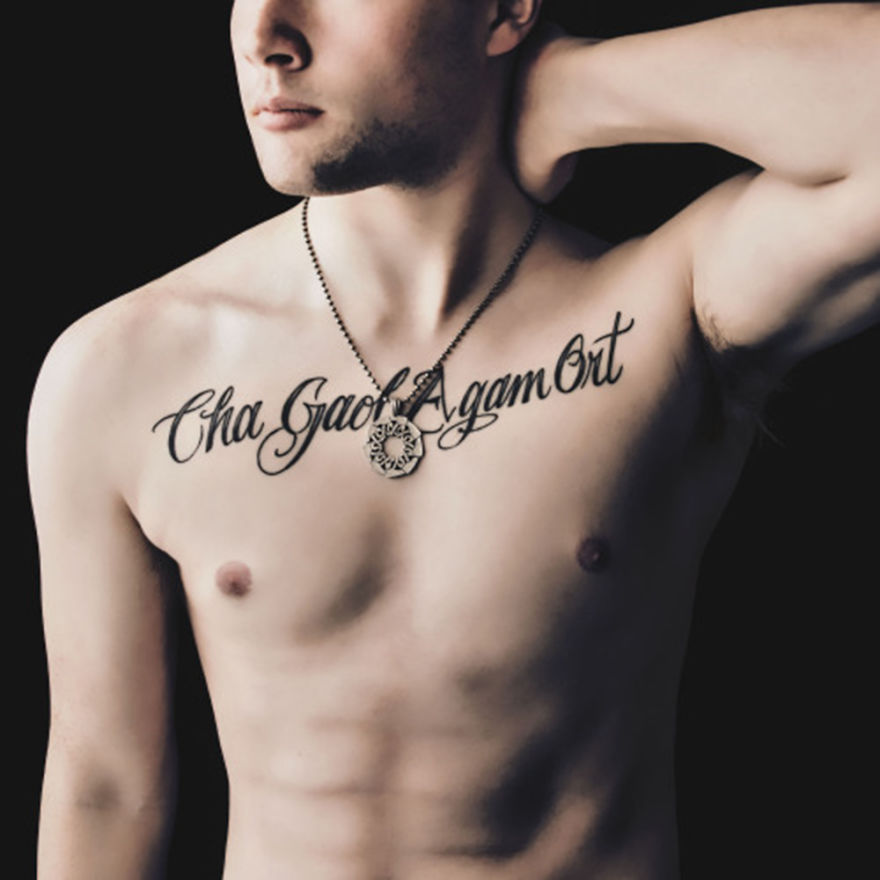
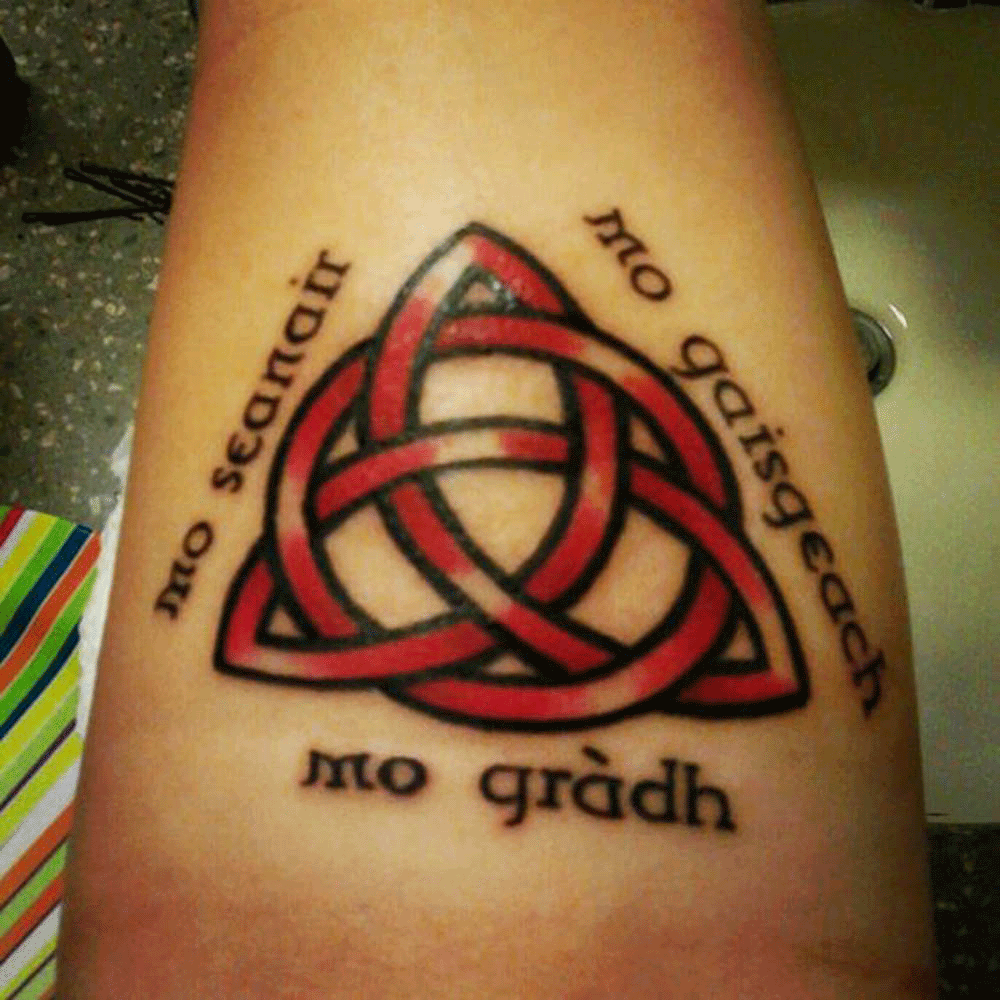
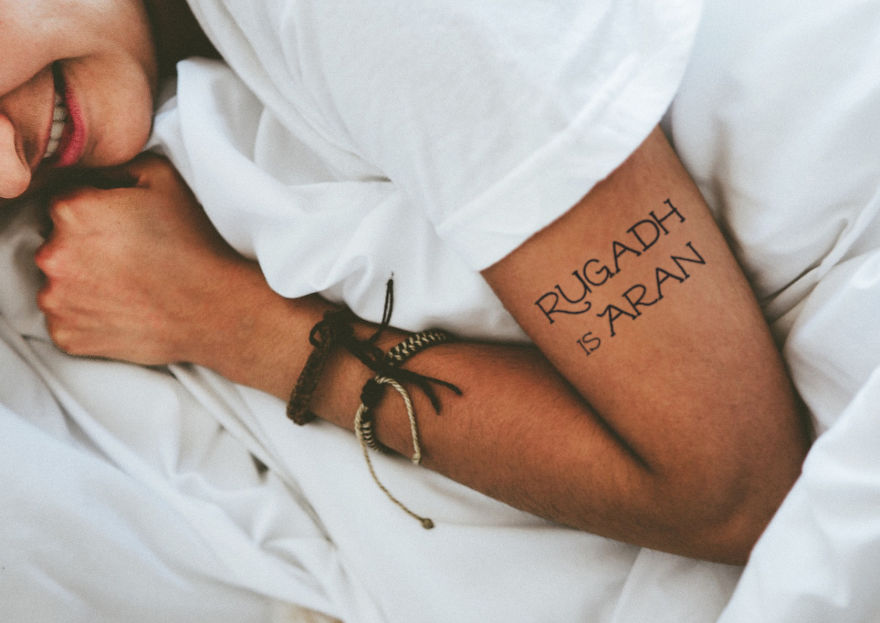
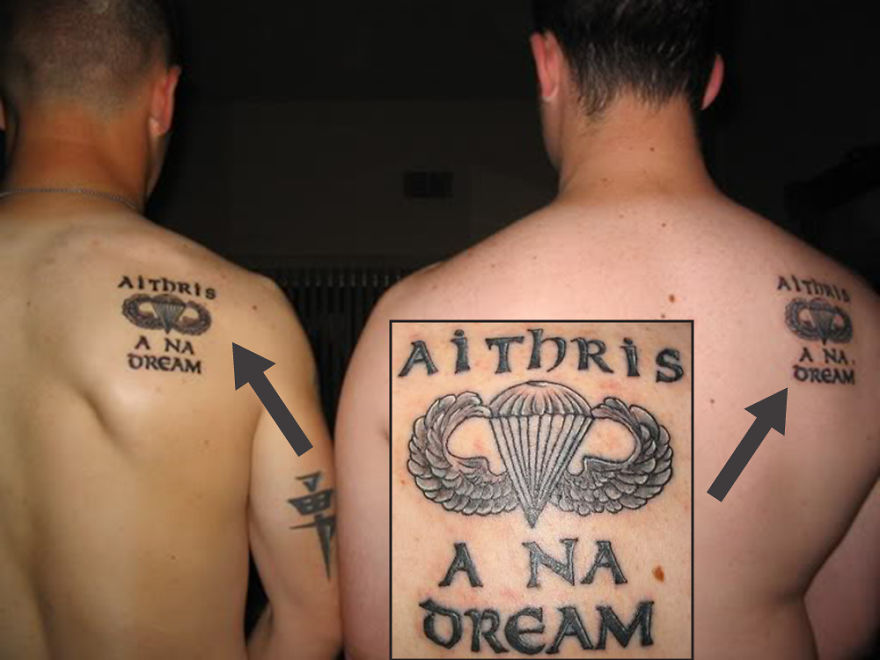
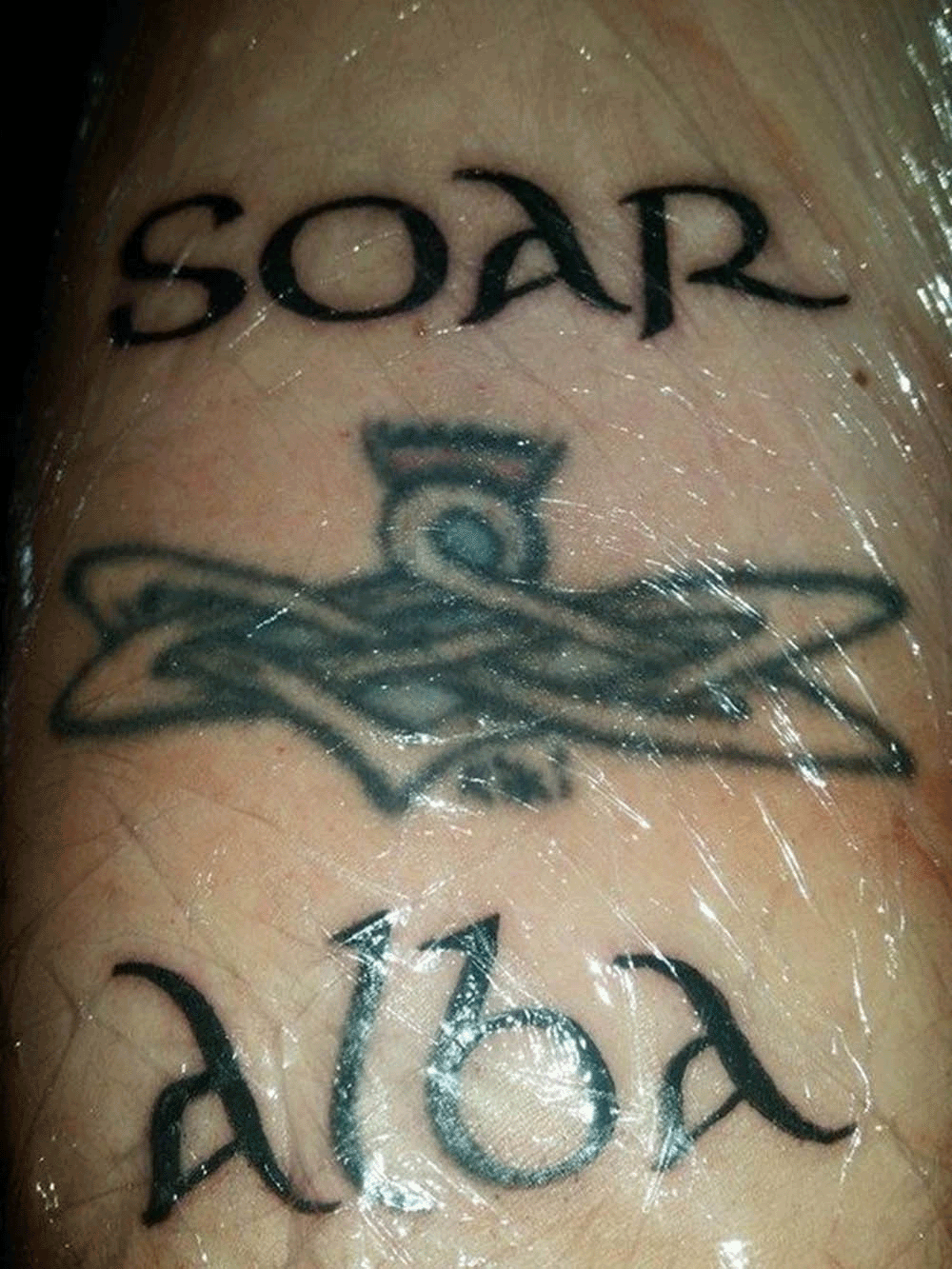
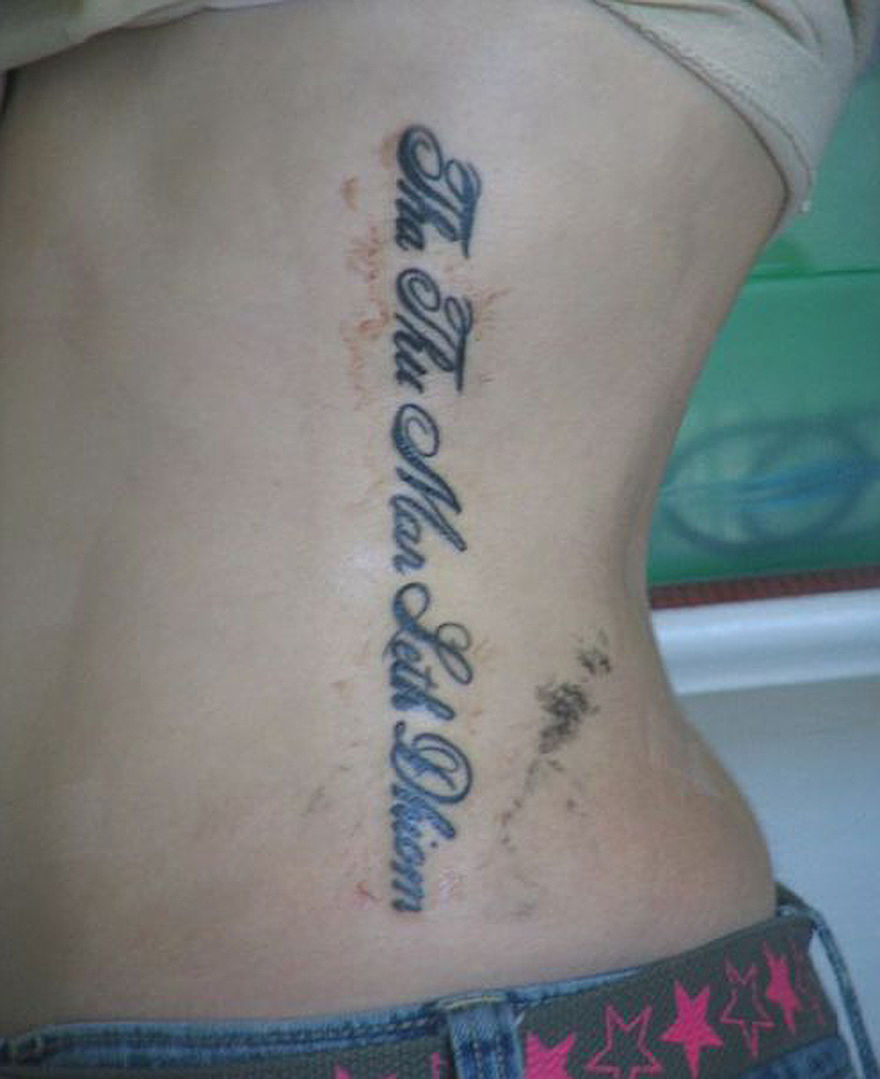
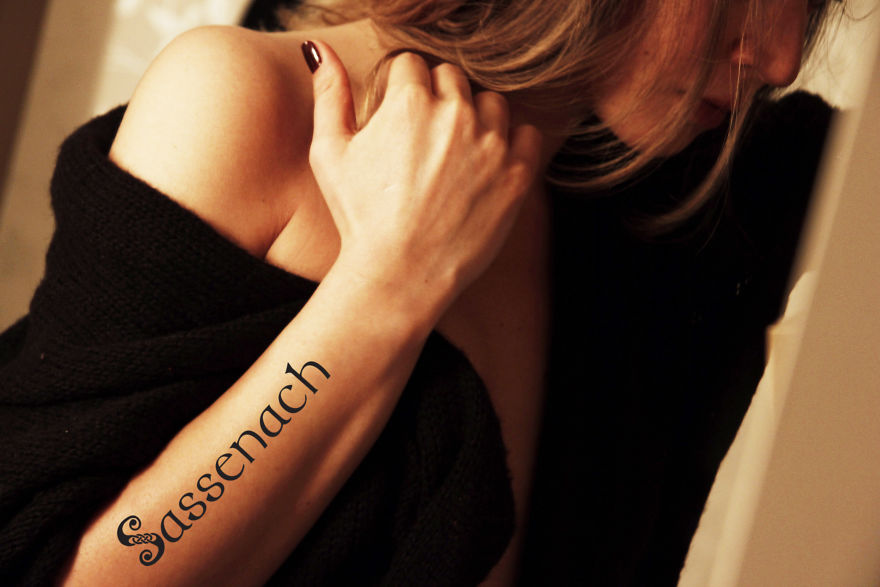
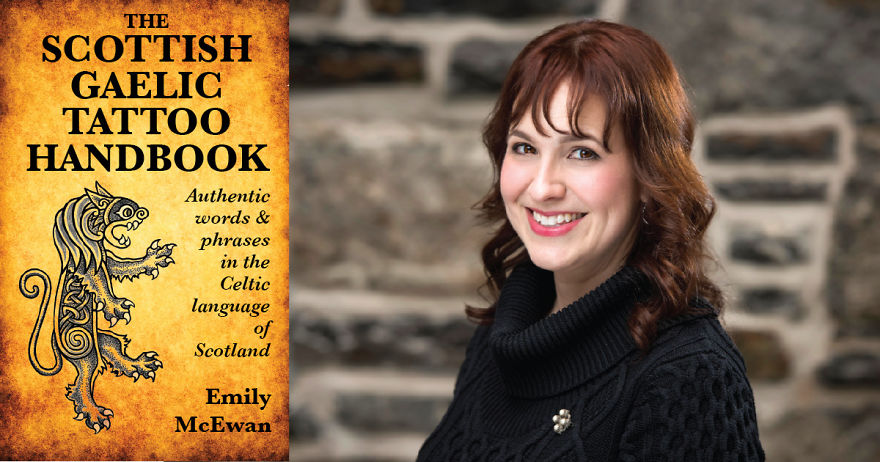



14
0